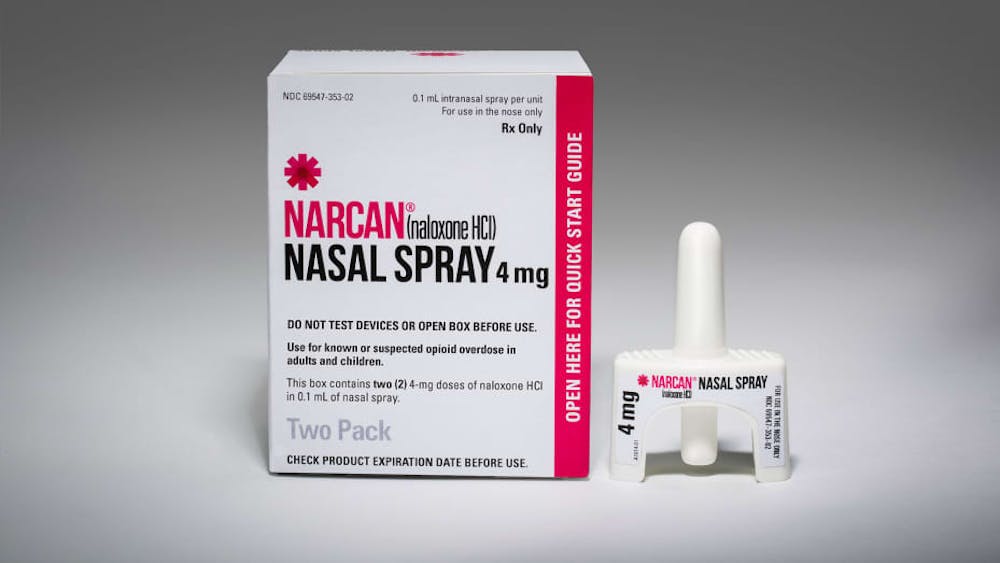Earlier this year, Arizona state legislators extended an emergency measure Good Samaritan law for drug-related overdoses. The renewed law has been extended until June 30, 2028.
The law, HB 2168, protects individuals from criminal prosecution who, in good faith, seek medical care for themselves or someone else experiencing a drug-related overdose.
Under the law, individuals may not be charged or prosecuted for possessing a controlled substance or drug paraphernalia or an offense if the person was seeking medical assistance.
State Senator Ken Bennett, R-Dist. 1, who co-sponsored the bill, said that renewing the law for another five years was the right thing to do because it has saved lives in the past.
“Just so that people you know in a critical situation for themselves or others aren’t having to worry about whether they’re going to be prosecuted for a crime when they’re really reaching out for help in an emergency situation,” Bennett said.
The CDC reported there was a 4.92% increase in drug overdose deaths in Arizona from June 2022 to June 2023.
Will Humble, the Director of the Arizona Public Health Association and the former Director of the Arizona Department of Health Services, said what is needed is to get information about the law out into the public domain.
“You can have a Good Samaritan law, and if no one knows about the good samaritan law, then they're gonna operate under the assumption that if they call 911 and they're in a house with illegal drugs, and there's an overdose, and they need help unless they know that they've got safe harbor a lot of people may err on the side of trying to manage it themselves and that costs lives,” Humble said.
According to the Maricopa County Department of Public Health, an estimated 991 people in Phoenix lost their lives to a drug overdose in 2022. The estimated overdose death rate for all drugs was 41.9 per 100,000 in Maricopa County.
Protection from criminal prosecution in the event of a drug overdose could be especially important for college students who might be vulnerable to situations where drug use is taking place.
At Arizona State University, a first-year residence hall community assistant, who requested anonymity because they were not authorized to speak about their work, said there is drug use at ASU and the law can make a big difference when it comes to saving lives.
The community assistant emphasized the importance of these laws which protect people because although lots of people don’t want to talk about it, there are people on campus that experiment with drugs.
“If someone is in that situation where they do experience an overdose then by having those laws, by making it known that if someone experiences an overdose, you can call for help, that makes a big difference. And that like few minutes, that four-five minute difference, that somebody tried to hide all the drugs or make the scene look different while a person is experiencing an overdose can be the difference between that person living or not surviving that overdose,” they said.
The residential community assistant said there have been overdoses in facilities housing first year students, and students need to know they have a safe way to get assistance for their dorm-mates.
Meanwhile the residential community assistant who requested to remain anonymous said they felt frustrated with the guidance given to them by supervisors, especially since they had some basic medical knowledge that could be a benefit in an overdose situation.
“I think that they were approaching it from the sense that they’re trying to protect me as an employee and as a CA, but it kind of rubbed me the wrong way because I know that even if I was responding to a situation in the first year residential community and someone was experiencing an opioid overdose or a suspected opioid overdose or they were in cardiac arrest respiratory arrest right?
I'm gonna help that person no matter the consequences. And so I felt it was kind of frustrating to hear them say you shouldn’t. You shouldn’t touch them; you should just call ASU PD and wait.”
The community assistant added that all those involved in residential operations should be trained on how to administer Narcan.
“Honestly, I think that we should be trained on Narcan and given access to it as CAs because a lot of the time, we’re gonna be the first person to the situation when it comes to an opioid overdose, and Narcan isn’t hard to learn how to use right, and it's never gonna hurt anyone like even if that person isn't experiencing an opioid overdose,” the community assistant said. “Getting them Narcan is only gonna help them, not hurt them.”

